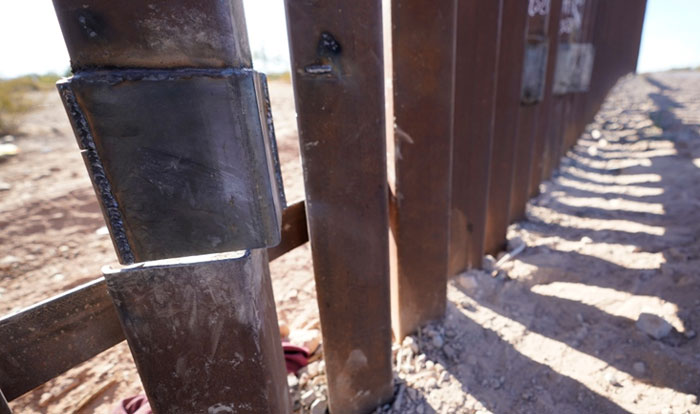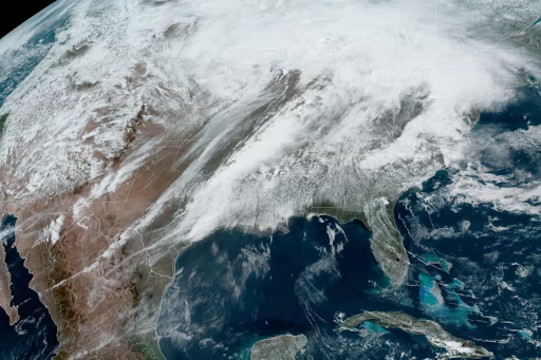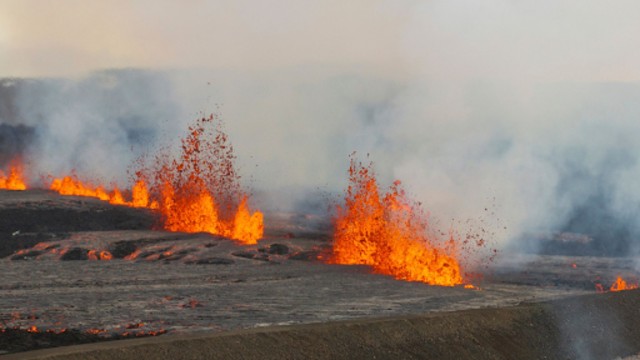
A steel column on the border wall dividing Arizona and Mexico was severed just beneath a recent repair on Friday, December 15, 2023, near Lukeville, Arizona. The incident was captured in a photo by Gregory Bull for the Associated Press.
In a bid to address the ongoing challenges at the shared border with Mexico, a delegation of high-ranking U.S. officials is set to visit the neighboring country soon. The negotiations, taking place in the backdrop of discussions surrounding U.S. assistance for Ukraine and Israel, involve both Republican and Democratic lawmakers engaged in a broader conversation on border policy changes.
The imminent visit follows the recent closure of two rail crossings in Texas, a move justified by U.S. officials who claim that the redeployment of personnel was necessary to manage the surging numbers of migrants crossing the border unlawfully. However, this decision has sparked controversy, with Mexican businesses expressing concerns about the adverse impact on trade.
In a conversation between U.S. President Joe Biden and Mexican President Andres Manuel Lopez Obrador, both leaders acknowledged the necessity for enhanced border enforcement to facilitate the reopening of the closed crossings. White House national security spokesman John Kirby reported that President Biden has tasked Secretary of State Antony Blinken, Homeland Security Secretary Alejandro Mayorkas, and White House homeland security adviser Liz Sherwood-Randall with a visit to Mexico to engage in discussions with President Lopez Obrador and his team.
Originally slated for this Saturday, the visit is now anticipated to occur the Wednesday after Christmas, according to an unnamed U.S. official. The primary focus of the delegation's visit will be to address migratory flows and explore collaborative efforts to manage the situation, as explained by Kirby during a White House briefing.
Contrary to reports circulating on social media, suggesting a deal had been struck to reopen the border crossings, a U.S. Embassy spokesman promptly refuted such claims, confirming that the crossings remained closed. The closure of rail crossings into Eagle Pass and El Paso, Texas, has been criticized by the Mexican Employers' Association as a "failure of migration policy," resulting in daily losses of $100 million due to delayed shipments.
Expressing urgency for both governments to tackle the migration crisis and its impact on trade, the association stressed the need for a joint resolution to prevent further economic damage to both nations. Mexico, heavily reliant on the U.S. for essential goods such as corn and soy products transported via rail, faces significant disruptions.
U.S. Customs and Border Protection (CBP) clarified that the decision to close the rail crossings aimed at redirecting personnel to assist the U.S. Border Patrol in handling the influx of migrants. Additionally, the CBP highlighted concerns about smuggling organizations using freight trains to transport migrants through Mexico, prompting collaborative efforts with Mexican authorities to address this issue.
As the situation unfolds, several border crossings, including Lukeville, Arizona, and a pedestrian entry in San Diego, remain closed to allocate more officials to manage the influx of migrants. The U.S. southwestern border has witnessed an unusually high level of illegal crossings, surpassing 10,000 on some days in December. The evolving dynamics underscore the complexity of the challenges faced by both the U.S. and Mexico in managing immigration and border control effectively.















